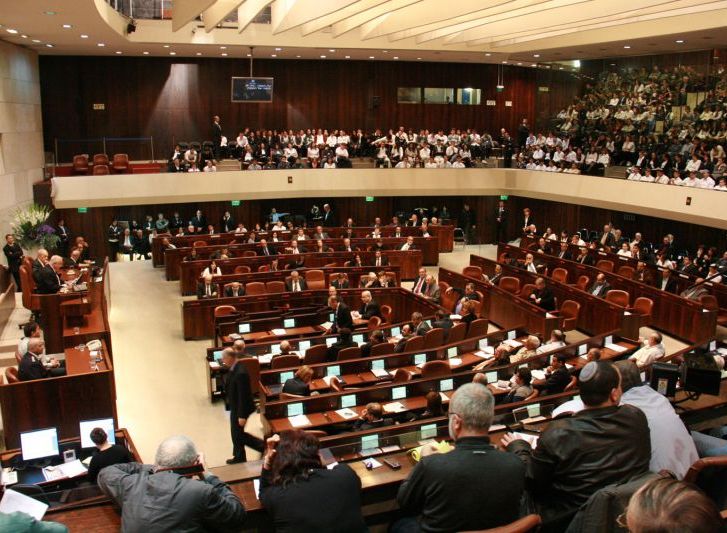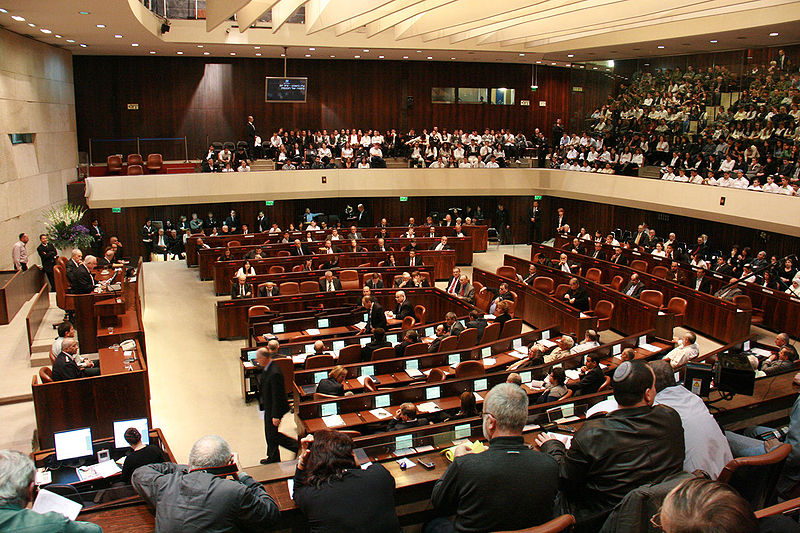MEDIA ADVISORY - Israeli Supreme Court to Hold Hearing on “Anti-Boycott Law” Wednesday, 5 December 2012 9am, in Jerusalem
(Haifa, Israel) At 9 am on Wednesday, 5 December 2012, the Israeli Supreme Court will hold the first hearing on a petition filed by Adalah and the Association for Civil Rights in Israel (ACRI) against the “Law for Prevention of Damage to the State of Israel through Boycott (5771/2011)” , known as the “Anti-Boycott Law”. The law imposes sanctions on any individual or entity that calls for an economic boycott of Israel’s settlements in the West Bank or of Israel itself. The Knesset passed the Anti-Boycott Law in July 2011 in the wake of the decision of several prominent Israeli artists not to appear or perform in settlements in the West Bank as an act of protest against the Occupation. The Anti-Boycott Law allows entities to win compensation from individuals or organizations who have called for a boycott in civil courts, without needing to prove any actual damages incurred. It also permits the Minister of Finance to impose financial penalties, including the removal of tax exceptions, on NGOs that call for a boycott. Supreme Court Justices Asher Grunis, Esther Hayut, and Salim Joubran will hear the case.
Adalah Attorneys Hassan Jabareen and Sawsan Zaher, and ACRI’s Legal Advisor Dan Yakir filed the petition on 11 March 2012 on behalf of eight civil society organizations, including five leading human rights organizations in Israel, namely Adalah; ACRI; the Public Committee Against Torture in Israel; HaMoked – Center for the Defence of the Individual; and Yesh Din.
In addition, the petitioners include three organizations that promote an economic boycott as a means to end the Occupation: the Coalition of Women for Peace, a women’s rights organization that runs a special project under the name “Who Profits?” and collects financial information on Israeli and international companies that benefit economically from the Occupation of the Palestinian territory and the Syrian Golan Heights; the High Follow-up Committee for Arab Citizens in Israel, which openly calls for a boycott of Israeli settlement products; and the Jerusalem Legal Aid and Human Rights Center, which believes that calling on the people of East Jerusalem to boycott Israel constitutes peaceful resistance to the Occupation.
The petitioners’ main arguments are that:
· “The purpose of the boycott law is not appropriate as it is punitive and seeks to impose sanctions on political expression based on its content, particularly as this expression is at the core of public and political debate in Israel”;
· “The law defines the call for a boycott as a civil wrong and makes it possible to file multiple lawsuits against the parties involved in absence of the need to establish specific damages”;
· “In contrast to the sanctions on the call for illegal and criminal actions such as incitement to violence, disobedience etc., the boycott law imposes sanctions on the call for a boycott itself, although both a call for a boycott and actual boycott action are unequivocally legal;
· The law allows politicians to unduly harass civil society organizations, under Articles 3-4: “…the above articles 3-4 grant politicians great powers for harassing public institutions, including civil society organizations, on account of their political expressions.”
According to the state’s response, “The position of the state is that the law, notwithstanding the difficulties it raises, does not establish a justification for constitutional annulment.” The state requested that all the petitions filed against the law be denied. Using the same argument as it used to defend the discriminatory Admissions Committee Law, the state contended that, because the Anti-Boycott Law had not been used in a civil suit in court, or by the Minister of Finance to impose financial punishments, petitions against the law’s constitutionality are premature. As is well-known however, the enactment of the law has a “chilling effect” on speech, which is prohibited. While, the state agrees that the law violates freedom of expression, it claims that it does so in a proportional manner.
International critique of the Anti-Boycott Law
The UN Special Rapporteur on the promotion and protection of the right to freedom of opinion and expression, Mr. Frank LaRue, in 2011,wroteof his“deep concern regarding some bills which have been proposed to or adopted by the Knesset, which contravene international standards on the right to freedom of opinion and expression. This includes three laws which have already been adopted, namely the so-called Nakba law, the foreign finding law, and the anti-boycott law.”
In its 2012 review of Israel’s progress under the European Neighborhood Policy Agreement, the European Commission referred to the “Anti-Boycott Law” as one of several laws passed by Israel in 2011 “that raise concerns, as they can potentially curtail the freedom of Israeli citizen organizations to express non-violent political opinions and can alienate the Arab Israeli minority.”
Human Rights Watch issued a press release immediately after the passage of the law entitled, “Israel: Anti-Boycott Law Stifles Freedom of Expression.” Amnesty-International, in its press release, emphasized “Israel anti-boycott law an attack on freedom of expression.”
Case citation: HCJ 2072/12, The Coalition of Women for Peace, et al v. The Minister of Finance, et al. (case pending)
For more information, see:
Excerpts of the Petition Against Anti-Boycott Law (English)
Excerpts of the State’s Response (English)
Israeli human rights groups: The anti-boycott law harms freedom of expression and targets nonviolent political opposition to the Occupation, Adalah Press Release, 12 July 2011
Leading Human Rights Organizations Petition the Israeli Supreme Court to Cancel the Anti-Boycott Law, Adalah Press Release, 15 March 2012
Contacts: Adalah Media Director Salah Mohsen, salah@adalah.org, mobile: 0525950922 or Edan Ring, edan@unik.co.il, mobile: 054-668-0085


















